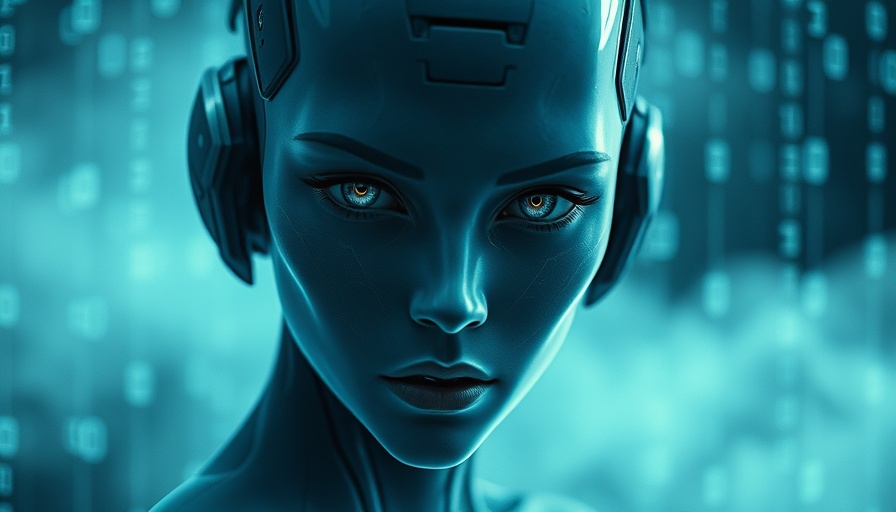Did you know that over 65% of Africa’s population is under 25, reshaping the continent’s workforce at an unprecedented pace? This youthful surge is not just a statistic—it’s the driving force catapulting internships into talent ecosystems in Africa, fundamentally changing how career growth and job market access unfold across the continent. As African startups, global firms, and academic leaders converge, traditional internships are morphing into dynamic, skill-rich pipelines that better serve the growing pool of motivated young Africans. In this opinion piece, we explore the bold new future of African internships—and why talent ecosystems matter for the next generation of African professionals. Startling Shifts: How Internships Are Evolving Into Talent Ecosystems in Africa
Across Africa, the conventional model of the internship program is rapidly giving way to innovative talent ecosystems. These aren’t just about on-the-job training; they now blend structured mentorship, robust digital skills acquisition, and real-world problem-solving with exposure to both local and international job markets. The change is driven by a combination of youth demographics, digital transformation, and the increasing demand from African tech companies and global employers for skilled professionals who are agile, collaborative, and digitally savvy. A new focus on remote work integration and active participation from industries makes Africa’s evolving talent pipelines unique. Instead of seeing internships as short, isolated stints, more programs adopt an ecosystem approach—offering ongoing support, robust networking, and direct pathways to career growth. By nurturing wide-ranging soft skills and technical know-how in collaboration with universities and forward-thinking employers, these ecosystems are narrowing the gap between academia and African markets. In this way, Africa’s growing pool of motivated young professionals become better poised, not just to fill jobs, but to solve real challenges and drive homegrown innovation. "Over 65% of Africa’s youth are under 25, fueling a dynamic shift in how internships are reimagined for the digital age." What You'll Learn in This Exploration of Talent Ecosystems in Africa How internships are evolving into talent ecosystems in Africa
The critical role of digital skills in transforming career growth
The impact of remote work on African talent pipelines
ACE programs and other innovative approaches
Challenges and opportunities in Africa’s internship landscape Table: Traditional Internships vs. Talent Ecosystems in Africa Feature
Traditional Internships
Talent Ecosystems Mentorship
Sporadic or informal mentorship, often limited to direct supervisors
Structured mentorship networks, ongoing support from industry professionals Digital Skill Acquisition
Basic or limited exposure; not always integrated
Central focus, including coding, analysis, remote tools, and soft skills Industry Involvement
Little engagement from industry partners, mostly internal
Active collaboration—including ACE Programs, African tech firms, and government initiatives Remote Work Integration
Rare or unstructured
Integral part, preparing African talent for global and remote roles Career Growth Pathways
Short-term, unclear, often ends with program
Clear trajectories, with links to African developers, employers, and product dev opportunities Rethinking Internships: Why Internships Are Evolving Into Talent Ecosystems in Africa
The transformation from traditional internship programs to holistic talent ecosystems is a uniquely African response to changing demographics and global opportunities. With the continent’s population projected to double by 2050 and a vast segment under 25, the future of work calls for a scalable approach to nurturing both digital skills and practical experience. African countries have seized on this opportunity, reimagining internships as entry points to robust talent pipelines that connect students, young professionals, and skilled talent with industry projects and lifelong learning. The future of Africa’s job market depends on the agility and scale of these ecosystems: they don’t just train interns, they create lifelong networks, cultivate digital change-makers, and accelerate Africa’s digital transformation. In doing so, they address the gap between academia and urgent needs in burgeoning African tech, finance, health, and creative sectors. As these ecosystems mature, they increasingly rely on digital platforms and regional directories to connect talent with opportunity. For instance, resources like the East Africa Top Directory play a pivotal role in mapping out digital real estate and professional networks, helping both employers and aspiring professionals navigate the evolving landscape of African talent pipelines. Changing Demographics and Technology Adoption: A Catalyst for African Talent Pipelines
Africa’s massive youth population is proving to be the continent’s greatest asset. Rapid technology adoption, from smartphones to cloud-based learning platforms, underpins the ecosystem shift. Increasingly, African universities and startups focus on pairing undergraduate and postgraduate students with tech firms eager for innovative capacity building and product dev partners. This demographic and technological synergy is creating a larger, more skilled pool of African talent that is not just ready for work experience but is also motivated to solve real-world challenges. As both local and international businesses recognise the potential in African developers and digital-savvy graduates, the demand for a new kind of training program—one that prepares talent for the realities of remote work, cross-border networking, and entrepreneurial problem-solving—is becoming undeniable. The Digital Skills Wave: Setting the Stage for Next-Gen Internships
The surge in digital skills training across Africa is setting a new standard for what internships can achieve. From data analysis and programming to social media management and virtual teamwork, modern internships now emphasize skills that are directly relevant to the booming sectors of the African economy. This wave is a response to the demands of employers who need qualified talent proficient in the latest tools, platforms, and remote collaboration technologies. Digital transformation is not just a buzzword—it’s a necessity. Many African startups and organizations are embracing the future of work by leveraging digital skills acquisition as the heart of their internship program strategies. As a result, there’s a palpable shift from passive learning to action-based capacity building, ensuring that young Africans are equipped for sustainable, long-term career growth in industries like fintech, health tech, agritech, and e-commerce. The Digital Skills Revolution: Key to Evolving Internships and Career Growth Growing Demand for Digital Skills in Africa’s Talent Ecosystems
Across the continent, employers are prioritising digital skills when recruiting interns, graduates, and early-career professionals. The ongoing digital skills shortage in many African markets has fuelled a boom in digital training programs, coding bootcamps, and virtual job platforms designed to find, train, and connect skilled professionals with real-world opportunities. In turn, this demand is reshaping the curriculum and structure of internships, with a stronger emphasis on technical fluency, digital literacy, and soft skills such as remote communication and collaboration. The shift is so pronounced that, for many sectors, digital skills have become as vital as formal education. From fintechs to agritech startups, employers now view digital competence as the main gateway to accessing Africa’s growing pool of qualified talent. As job markets across Africa digitise, the most successful talent ecosystems invest heavily in both hard and soft skills—ensuring ongoing support, aligning learning with industry trends, and empowering interns to lead the next wave of African innovation. Top Digital Skills Shaping African Internships and Career Growth Data analysis
Programming
Social media management
Remote collaboration These skills are now integrated directly into internship programs, supporting work experience that is both practical and future-ready. African youth who prioritise such digital capabilities are better prepared for the realities of remote work, product dev, and ongoing career growth, both locally and globally. "The future belongs to those who master digital skills within Africa’s talent ecosystems." Remote Work: A Pillar of Africa’s Evolving Talent Ecosystem
How Remote Work Is Reshaping Internships and African Talent Pipelines
The global shift to remote work has had a profound effect on the African internship experience. No longer limited by geography or old-fashioned office cultures, today’s internship program models allow young Africans from remote villages and major cities alike to collaborate with international companies, access mentorship, and tackle projects that matter across the continent. Remote work integration means the pool of motivated and skilled professionals is no longer constrained by physical borders—creating enormous opportunities for both African tech firms and global employers. For Africa’s next generation of digital talent, remote work doesn’t just mean working from home. It means greater job market access, cross-border networking, and a chance to deliver real solutions to real problems. African startups are leveraging remote internships to connect students with digital skills mentors, give feedback on projects, and foster continuous career growth. Given ongoing challenges like digital infrastructure gaps and inconsistent electricity supply, evolving remote work best practices—including asynchronous communication, regular feedback, and virtual communities—are vital for a truly inclusive talent ecosystem. Best Practices for Remote Work in Africa’s Internships
Success in remote internships depends on robust digital infrastructure and proactive support from employers and mentors. Leading programs emphasise clear expectations, collaborative project management tools, and reliable check-ins. For many African countries, targeted investment in connectivity and virtual training program offerings remains key for inclusion. By equipping interns with the necessary soft skills—like remote communication, time management, and adaptability—Africa’s burgeoning tech workforce is well on its way to thriving in the future of work. Ultimately, the embrace of remote work within African internships illustrates the continent’s commitment to capacity building and digital transformation. It has proven to be a powerful equaliser, offering chances for work experience and career growth irrespective of background or location, and underscoring the essential role remote internships will play in the continent’s evolving ecosystem. ACE Program Insights: A Model for Internship Evolution in Africa What Makes ACE Programs Stand Out in Africa’s Talent Ecosystems
At the forefront of the shift from internships to talent ecosystems are models like the ACE program (African Career and Employability programs). ACE programs are designed around the needs of both employers and young professionals, using immersive, project-based learning alongside traditional work experience. ACE stands apart by integrating ongoing mentorship, digital skills acquisition, and real-world problem solving into a unified training program—equipping young Africans for jobs, entrepreneurship, and leadership in African startups and global companies alike. Distinct from traditional internship program structures, ACE programs align their curriculum with the demands of emerging job markets, often partnering directly with African tech hubs, industry leaders, and community organizations. This collaboration ensures participants gain practical, resume-worthy experience while building networks that are essential for sustainable career growth and ongoing success in Africa’s competitive digital economy. Impact of ACE Programs on Career Growth for African Youth
Feedback from graduates and employers points to the measurable impact of ACE programs: enhanced confidence, specialised digital skills, and immediate integration into African talent pipelines. Many ACE initiatives focus on connecting students with live, international projects, offering a scale of exposure and global relevance rarely found in traditional internships. By partnering with governments, NGOs, and the private sector, ACE programs create career growth ladders for Africa’s youth—directly addressing skills gaps and providing a launchpad for entrepreneurial aspirations. In this way, ACE and similar industry-led internship programs offer a blueprint for building a highly skilled, adaptable workforce—one capable of solving real problems not just across the continent, but also on the global stage. Building Sustainable African Talent Pipelines Through Ecosystems
The Role of Industry Partnerships in Internship Evolution
Collaboration between universities, governments, and private industry has become the backbone of Africa’s most successful talent pipelines. Industry partnerships drive the relevance of work experience, ensuring that interns can contribute to product dev, digital marketing, and capacity building initiatives central to Africa’s development. Through such alliances, young professionals benefit from access to skilled mentors, cross-sector learning, and soft skills that extend well beyond a typical workplace. African markets thrive on these multi-layered partnerships, where mentorship, digital skills, and access to African tech networks intersect. By connecting students across the continent with cutting-edge projects and industry leaders, partnerships are building a robust ecosystem that transforms African talent into global game-changers. Government Initiatives and Policy for Stronger Talent Ecosystems
Many African countries now recognise the vital role that government policy plays in nurturing the future of work. Efforts to expand digital infrastructure, invest in online education, and incentivise tech-driven training programs are reshaping the landscape for young Africans entering the workforce. Targeted government partnerships with universities and the private sector allow for better funding, accreditation of digital skills courses, and the integration of work experience into academic curricula. Government support also bridges critical gaps, such as those between rural and urban access to skilled talent, ensuring that Africa’s future-ready ecosystem is diverse and inclusive. By providing financial incentives, regulatory frameworks, and fostering industry involvement, policymakers empower a new generation of African professionals to thrive in—and drive—the continent’s digital transformation. Challenges Internships Face as They Evolve Into Talent Ecosystems in Africa Digital infrastructure gaps
Access to industry mentors
Bridging academia and work experience
Funding and scalability While the shift to talent ecosystems creates enormous opportunity, it is not without hurdles. Persistent digital infrastructure gaps in some regions limit the reach and inclusivity of online training and remote internships. There is also a shortage of experienced mentors who can offer ongoing support to a rapidly growing pool of motivated students. Perhaps the greatest challenge remains bridging the divide between theory (academia) and practice (work experience). Many academic institutions still lag in updating curricula to meet industry needs. Moreover, the scalability of impactful internship program models like ACE requires sustained funding, greater internet access, and strong cross-sector buy-in. Overcoming these obstacles will define the effectiveness and scalability of Africa’s talent ecosystems in the years ahead. Opportunities and Strategies: How African Youth Can Thrive in Evolving Talent Pipelines Seek digital skills training
Engage in remote internships
Participate in ACE programs
Leverage networks and industry partners For young Africans, the evolving internship landscape offers a multitude of career growth pathways. Taking charge by enrolling in targeted digital training programs, seizing remote internship opportunities, and becoming active in ACE or similar initiatives can provide both practical experience and access to influential networks. African youth are uniquely positioned to shape the future of work across the continent by pursuing ongoing training and building collaborative relationships with industry partners. The key is to be proactive: digital skills and remote work experience are no longer optional—they are the foundation for future success in Africa’s tech-driven job markets. By following these strategies, ambitious young Africans are not only able to compete globally but also lead transformative change in their home countries. Watch: Expert panel of African educators, business leaders, and interns in a virtual roundtable discussion on the evolution of African talent pipelines, featuring B-roll of vibrant workspaces and digital skills training across the continent. People Also Ask: Why Are Internships Becoming Talent Ecosystems in Africa?
How are internships evolving globally and how does Africa compare?
Globally, internships are shifting away from simple on-the-job training toward more holistic, skill-oriented experiences—mirroring Africa’s evolution into talent ecosystems. What sets Africa apart is the speed and creativity with which local organisations, startups, and governments have adapted, integrating digital skills, remote work, and cross-sector collaborations at scale. The continent’s vast youth population and rapid tech adoption mean that Africa is becoming a global leader in rethinking how internships launch lifelong career growth. What are examples of successful talent ecosystems in Africa?
Examples include the ACE program, the Andela developers network, and the Moringa School model for digital skill development. Each connects students to mentors, hands-on projects, and direct employment opportunities with African tech firms and multinational companies. These ecosystems move beyond internships to provide continuous support, feedback, and career development opportunities. What role do digital skills play in Africa’s internship evolution?
Digital skills are the backbone of Africa’s evolving talent ecosystems—integral for remote work, product development, and job market success. Training program curricula are now designed to ensure all interns acquire coding, data analysis, project management, and digital communication skills before graduation, making them competitive globally. How has remote work impacted the quality of African internships?
Remote work has expanded access to quality internship programs across the continent, overcoming previous barriers like geography and infrastructure. Virtual internships allow African youth to engage with international mentors, solve real problems in diverse teams, and access global job markets, even from rural locations. Answer: How Are Internships Evolving Globally and How Does Africa Compare?
Internships worldwide are being reimagined as gateway experiences that pave the way for future-ready skills and direct hire opportunities. In Africa, this evolution is especially pronounced due to the continent’s strategic focus on digital skills, industry partnerships, and remote work exposure. Africa’s approach stands out for its balance of practical, scalable outcomes alongside innovative mentorship and networking access. Answer: What Are Examples of Successful Talent Ecosystems in Africa?
Beyond ACE, organisations like Andela, MEST Africa, and Moringa School have all pioneered scalable ecosystems. Their participants benefit from ongoing mentorship, networking, and global work experience, bridging the gap between classroom learning and industry-ready skillsets. Answer: What Role Do Digital Skills Play in Africa’s Internship Evolution?
They sit at the heart of the transformation—serving as the essential currency for accessing opportunities, delivering value, and scaling professional growth within Africa’s dynamic job market. Answer: How Has Remote Work Impacted the Quality of African Internships?
It’s broadened access, enabled cross-border collaboration, and set a new standard for inclusion and excellence, turning Africa’s diverse regions into a single, interconnected talent ecosystem. Video visually explores the transition from traditional jobs to holistic ecosystems through expert interviews, animation, and case studies of innovative African internship programs. FAQs: Internships Are Evolving Into Talent Ecosystems in Africa What is a talent ecosystem? A talent ecosystem is a network of programs, mentors, employers, and resources that collaboratively nurture skills, provide career support, and create clear pathways for long-term professional growth, rather than short-term job placements.
How can I join ACE programs? Visit the official ACE Africa website or talk to your university’s career services. Many programs offer online applications and welcome motivated students seeking digital and soft skills for tomorrow’s workplace.
Are remote internships effective in Africa? Yes. Remote internships level the playing field, offering access to global mentors and projects, especially for students in regions with fewer local opportunities. Success depends on access to digital infrastructure and regular support from supervisors.
What digital skills are most valuable? Data analysis, programming, remote team collaboration, and digital marketing stand out. Employers in African tech and beyond also prioritise communication, adaptability, and ongoing learning. Key Takeaways: The Future of Internships Are Evolving Into Talent Ecosystems in Africa Internships are evolving into more holistic talent ecosystems
Digital skills and remote work are central
ACE programs show scalable, innovative models As Africa’s talent pipelines continue to evolve, staying informed about the latest digital platforms, industry partnerships, and regional opportunities is essential for both aspiring professionals and forward-thinking employers. Exploring resources such as the East Africa Top Directory can help you discover new avenues for collaboration, digital real estate, and career advancement within the continent’s vibrant ecosystem. Whether you’re seeking to build your network, identify emerging trends, or connect with leading digital agencies, leveraging these directories empowers you to navigate Africa’s fast-changing professional landscape with confidence. Take the next step in your journey by tapping into these strategic resources and positioning yourself at the forefront of Africa’s digital transformation. Stay Ahead in the AI Revolution: Join 10,000+ African Students, Entrepreneurs, and Tech Leaders with AI Africa News
Ready to stay ahead of Africa's AI revolution? Join AI Africa News for weekly insights on tools, opportunities, and success stories—designed for African innovators and students. Get practical knowledge, no fluff—just actionable intelligence. Join 10,000+ African students, entrepreneurs, and tech leaders already reading AI Africa News. Sources https://www.un.org/africarenewal/magazine/august-2022-young-africa-africa’s-youth-boom – UN Africa Renewal
https://www.worldbank.org/en/region/afr/publication/africa-digital-transformation-strategy-2020-2030 – World Bank Africa
https://ace.edu/ – ACE Program Africa
https://www.mestafrica.com/ – MEST Africa
https://andela.com/ – Andela
https://www.brookings.edu/blog/africa-in-focus/2023/09/15/a-new-era-for-african-youth-in-tech/ – Brookings Africa in Focus

 Add Row
Add Row  Add
Add 




Write A Comment